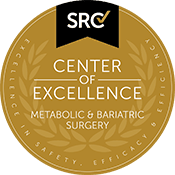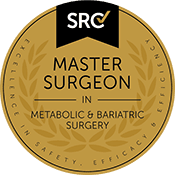
- Expertise
- Compassion
- Success
Lose the Weight and
Gain Back Your Life!
Everything you need to know about protein

If you have had bariatric surgery, chances are your dietitian has mentioned how important protein is throughout your weight loss journey. So if you know you are not getting enough protein but ae not sure why you need it, or how to work out how much you need, here is everything you need to know.
What is protein?
As one of the 3 key nutrients, protein is primarily found in animal based foods including dairy, meat, eggs, fish as well as in smaller quantities in nuts, seeds and legumes. Unlike carbohydrate, the body actually requires a certain amount of protein each day in order to maintain a number of metabolic processes in the body and if these levels are too low over time metabolism will slow halting weight loss.
Why is protein so important for weight loss?
In the case of those who have undergone weight loss surgery, protein is particularly important for two key reasons. The first is that since your food intake is dramatically reduced, protein intake is naturally limited. Even if you can manage a few tablespoons of fish or meat in your diet each day, your protein intake will still be less than ½ of what you have been used to consuming. In addition, protein rich foods including meat, chicken and fish are not always well tolerated by those who have had a sleeve or bypass. The other key reason protein is such an important part of your weight loss journey is that consuming adequate protein will also ensure that you preserve as much muscle mass as possible. A low calorie and protein intake will naturally lead to some muscle loss, and the more of this we can reduce with an adequate protein intake, the better it is for your metabolism long term.
So how much protein do you need?
Adults need roughly 1g of good quality protein for every kilo of body weight. We base this on your healthy weight, not your original pre surgery weight which means that the average female will require a minimum of 50-70g of protein per day and a male 80-100g per day. Protein is not a one size fits all model – just because one person has been told they need 80g does not mean you do too, rather it is dependent on height and weight so check with your Dr or dietitian if you are unsure about how much protein you require.
How do you get enough?
The most common nutrition issue we see with our patients in clinic is that they are not consuming enough protein post-surgery. While protein is not so important during the initial 4 week recovery phase, once you reach 4-8 weeks post-surgery, ideally you will be aiming for 1g per kilo of ideal body weight. When you consider that consuming a protein shake for breakfast, followed by some tuna for lunch and a couple of mouthfuls of lean chicken or meat for dinner equates to only 40g of protein per day, you can see that it can be challenging to get enough. For most people the key is to include at least 1 serve of protein via a protein shake or a scoop of collagen protein to reach their daily protein targets. This is in addition to focusing on including one protein rich food such as fish or egg or plain yoghurt at each meal.
Can you have too much protein?
Indeed you can – in the case of protein it still is a source of calories so you can have too much and more is not better. Rather sticking to within 10-20g of your daily requirements will ensure that you do not have too much and potentially halt weight loss.
ProteinServingg of protein
| Beef/pork/lamb | 100 grams | 30 |
| Chicken/turkey | 100 grams | 28 |
| Seafood | 100 grams | 20 |
| Milk | 250 ml glass | 9 |
| Cheese | 1 slide (20g) | 5 |
| Chobani Yoghurt | 140 gram tube | 11 |
| Tuna / Salmon | 95g can | 20 |
| Egg | 1-cooked | 8 |
| Baked Beans | 1 cup | 10 |
| Nuts | 15 nuts | 5 |
| Protein Water | 1 sachet (52g) | 30 |
| Protein Powder | 100% Whey (1 tbsp.) | 20 |





